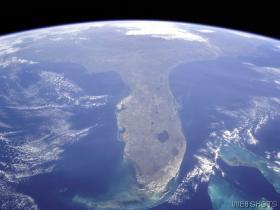 Class 2
/ IDS 3920 / Spring 2004
Class 2
/ IDS 3920 / Spring 2004
Informed
and engaged citizens are essential to the creation of a civil
and sustainable society. The University values the development
of the responsible self grounded in honesty, courage, and compassion,
and committed to advancing democratic ideals. Through service
learning requirements, the University engages students in community
involvement with time for formal reflection on their experiences.
Integral to the University ’s philosophy is instilling in students
an environmental consciousness that balances their economic andsocial
aspirations with the imperative for ecological sustainability.
~ From
the Florida Gulf Coast University Principles
Reading
State of the World 2003
Chapter 2 Watching Birds Disappear"
Please read John Dewey's
Experience and Education, 1938. Chapters 1, 2, 3, 5,
8 (pp. 17-50, 61-65, and 89-91).
Some questions to think
about . . . (and, perhaps, write about . . .)
- What elements of your
education have been “traditional”? What elements of your education
have been “progressive”?
- How important
has experience been in your own education?
- What is experiential
education?
- Is experience
essential to ecological literacy?
- In what ways might
Dewey’s ideas guide us in our exploration of a
sustainable future?
- What is a philosophy
of education? Do you have one?
- What is
education?
Paper 1 : Educational
Reflections
Paper One is due. It will be
graded pass/fail and should be three pages in length, double-spaced,
typed. Your paper shall be evaluated according to the criteria presented
by the assessment rubric and by your section instructor.
Reflecting upon your own education in
both formal (schooling) and non-formal (scouting, church, family,
experience) settings, think about your education as it relates to
the philosophy of experience of John Dewey. What have been the
most important influences in your education? School? Church?
Television and the Internet? Who has shaped your education?
Write a brief reflective essay of three
typed, double-spaced pages on important educational events and/or
ideas in your life. Using specific citations from John Dewey's
Experience and Education (1938), select ideas to which you
can relate in terms of your educational experience. Connect
his philosophical notions to examples from your experience. This is
more than a recounting; it is an opportunity to consider your educational
experience in light of reading John Dewey. As a first assignment
and a personal exploration, the essay will be graded pass/fail.
It will help your instructor get to know you as a writer and as a
learner.
Journaling
Locate a journal in which
you can reflect, write, draw, record, and otherwise creatively process
your experience in the Colloquium. It is our expectation that
you will use your creative journal regularly. For now, find
a size and shape you like and bring it to the field trip. You
may wish to write a reflection on the first class. You may wish
to do some prewriting of your essay. You may wish to respond
to nature . . . Do at least one entry this week.
Field Tripping
We will meet at National
Audubon Society's Corkscrew Swamp Sanctuary on
Immokalee Road in Naples.
 Directions to Corkscrew Swamp Sanctuary
Directions to Corkscrew Swamp Sanctuary
Home Syllabus
Syllabus Introduction
Introduction Required
Texts
Required
Texts Field
Trips
Field
Trips Journal
Writing
Journal
Writing Final
Project
Final
Project
Writing
Papers Weblinks
Weblinks Floridiana
Floridiana Rubrics
Rubrics

 Florida
Gulf Coast University
Official Website 2003
Florida
Gulf Coast University
Official Website 2003

